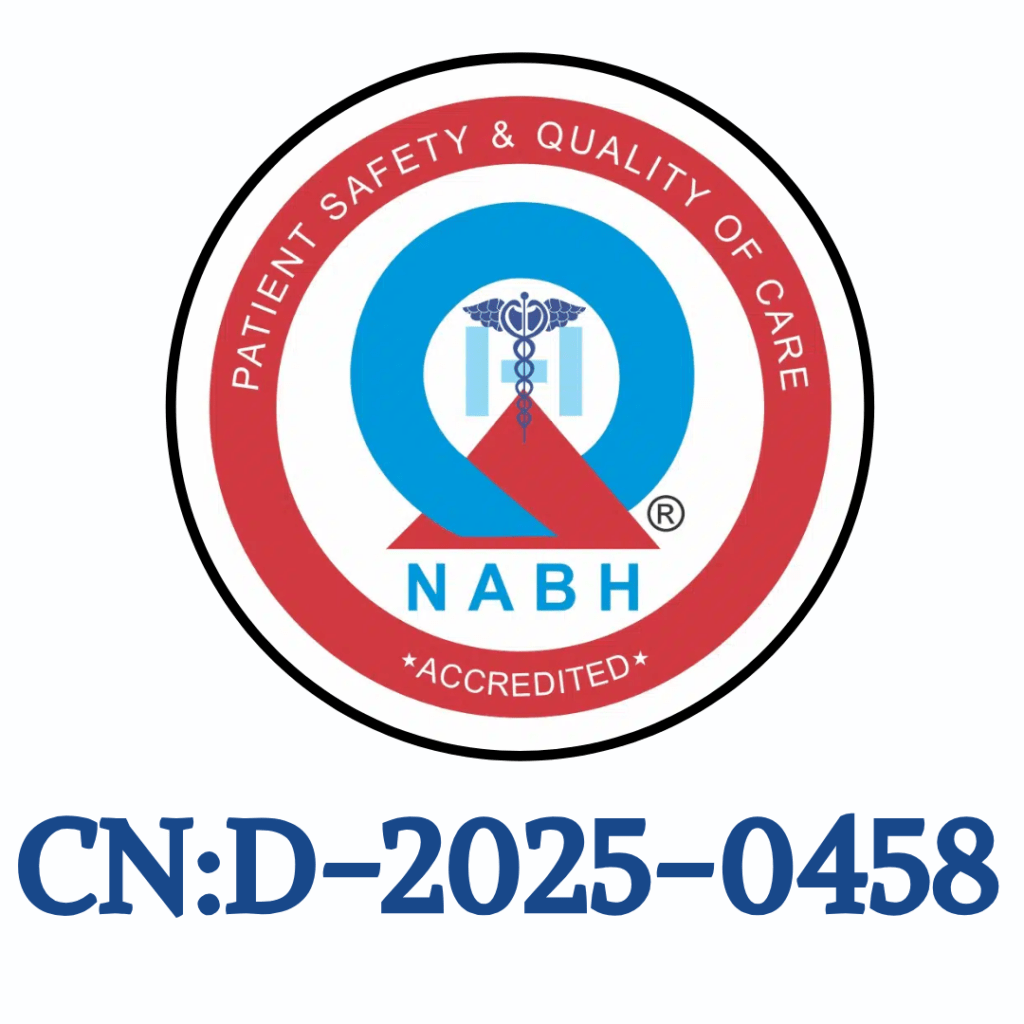WHAT IS IMPACTION??
Impaction in dental means when a tooth gets stuck and can’t come out properly. It’s like when a car is stuck in mud and can’t move. The tooth might be blocked by other teeth or stuck under the gum. This can cause pain and problems with how your other teeth fit together. It’s like having a puzzle piece that won’t fit right. To fix it, a dentist might need to remove the stuck tooth or help it come out properly.
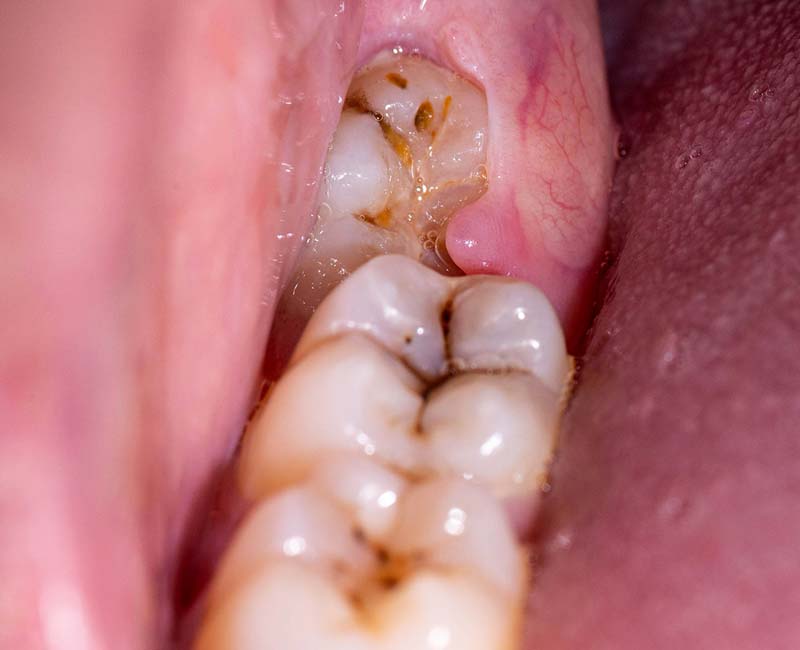
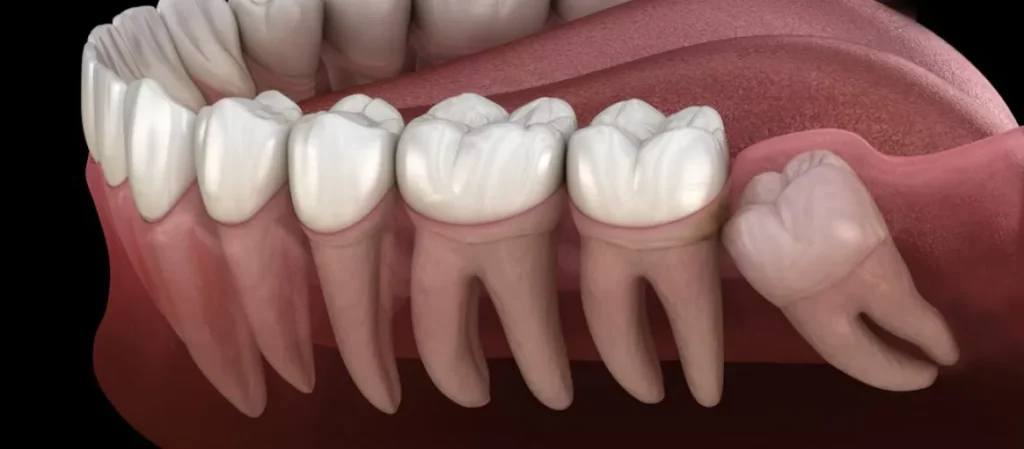
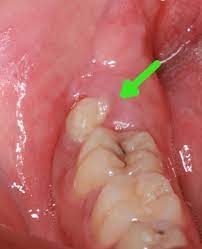
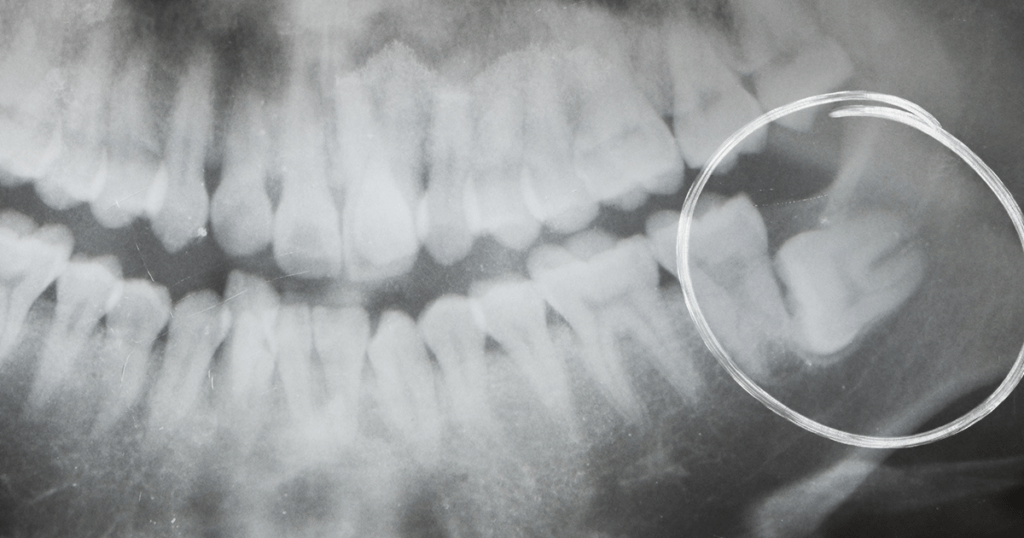
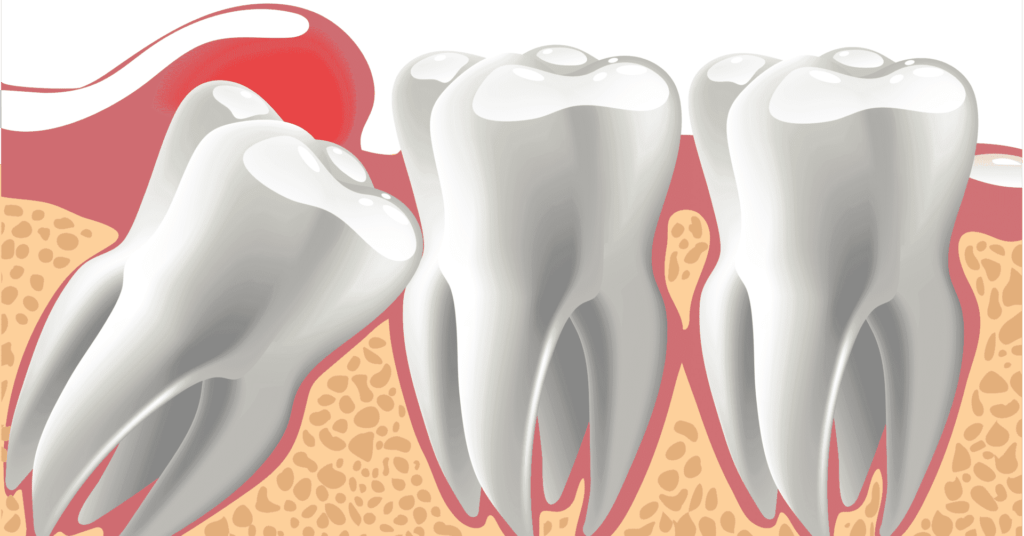
| UNDERSTANDING DENTAL IMPACTION:
Imagine a crowded parking lot where cars are tightly packed, making it difficult for one vehicle to maneuver out of its spot. Similarly, dental impaction happens when a tooth is unable to emerge fully due to obstacles such as neighboring teeth, lack of space, or abnormal positioning. This can occur with any tooth, but it most commonly affects wisdom teeth (third molars) and canines (eye teeth).
| SYMPTOMS OF DENTAL IMPACTION:
- Identifying dental impaction early is crucial for prompt treatment. Common symptoms include:
- Persistent pain or discomfort in the affected area
- Swelling and tenderness around the gums
- Difficulty opening the mouth or chewing food properly
- Bad breath or an unpleasant taste due to trapped food particles
- Development of cysts or infections around the impacted tooth
- If you notice any of these signs, it’s essential to consult your dentist for a thorough evaluation.
| TREATMENT OPTIONS FOR DENTAL IMPACTION:
The appropriate treatment for dental impaction depends on various factors, including the tooth’s position, the severity of impaction, and the individual’s overall oral health. Here are some common treatment options:
Observation: In some cases, particularly with asymptomatic or minimally symptomatic impactions, your dentist may recommend monitoring the tooth’s progress over time.
Extraction: If the impacted tooth is causing significant discomfort, infection, or damaging adjacent teeth, extraction may be necessary. This procedure involves surgically removing the impacted tooth under local anesthesia.
Orthodontic Intervention: For impacted teeth that have adequate space but are misaligned, orthodontic treatment such as braces or aligners may be recommended to guide the tooth into its proper position gradually.
Surgical Exposure and Orthodontic Alignment: In complex cases where the impacted tooth is buried beneath the gums, a surgical procedure called exposure and bonding may be performed. This involves uncovering the impacted tooth and attaching a bracket to it, which is then used by an orthodontist to guide the tooth into alignment.
| PREVENTING DENTAL IMPACTION:
While some factors contributing to dental impaction, such as genetics and jaw size, are beyond our control, adopting good oral hygiene habits can help reduce the risk. Remember to:
- Clean your teeth twice a day using toothpaste that contains fluoride.
- Make it a habit to floss your teeth every day to eliminate plaque buildup and clear away food particles.
- Attend regular dental check-ups and cleanings to detect and address any issues early on
| CONCLUSION:
Dental impaction can be a painful and disruptive condition, but with timely intervention and proper management, it can be effectively treated. If you suspect you have a dental impaction or are experiencing any oral discomfort, don’t hesitate to seek professional dental care. Your dentist can provide personalized guidance and treatment options to alleviate your symptoms and restore your oral health.
FAQ
Most frequent questions and answers
Symptoms of impaction vary depending on the location but may include abdominal pain, difficulty passing stool, hearing loss, or jaw pain.
In some cases, impaction may resolve on its own with time and proper self-care measures. However, medical intervention may be necessary for severe cases.
Treatment for impaction depends on the underlying cause but may include dietary changes, laxatives, ear irrigation, or surgical removal.
Preventing impaction involves maintaining a healthy diet with plenty of fiber, staying hydrated, practicing good ear hygiene, and avoiding inserting foreign objects into the body.
You should seek medical attention if you experience persistent symptoms of impaction, such as severe pain, inability to pass stool or urine, hearing loss, or if self-care measures are ineffective.


